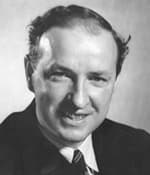Morley Callaghan
Critique • Works • VIEWS & QUOTES
 MORLEY CALLAGHAN, undated
MORLEY CALLAGHAN, undatedBorn
Toronto, Canada, 1903
Died
Toronto, Canada, 1990
Places lived
Toronto; Paris, France; Toronto, Canada
Nationality
Canadian
Publications
Novels, novellas, stories, memoirs, plays, journalism
Genres
Literary
Writing language
English
Literature
• Morley Callaghan's Stories (1959)
Stories
• "A Sick Call" (1932)
• "Two Fishermen" (1934)
• "All the Years of Her Life" (1935)
Story Collections
• Now That April's Here and Other Stories (1936)
Canadian Literature
• Strange Fugitive (1928)
• Such Is My Beloved (1934)
• More Joy in Heaven (1950)
• Morley Callaghan's Stories (1959)
On books, writers and writing
1959
Many other stories I have written might have been included in this book, but these are the ones that touch times and moods and people I like to remember now. Looking back on them I can see that I have been concerned with the problems of many kinds of people but I have neglected those of the very, very rich. I have a story that begins, "Once upon a time there were two millionaires," but I haven't finished it yet.
Introduction to Morley Callaghan's Stories
1963
No man had meant more to me than Ernest [Hemingway]. But in the years since those days he had gone far along another path. He had gone right out of my life. The Ernest I had known so well had been the author of A Farewell to Arms, The Sun Also Rises, and the early stories. Though I had gone on reading his books he had become a public figure, a man of legends, and I could hardly recognize in those legends the man I had once known who had all my affection.
Chapter 1, That Summer in Paris
Why did I dislike so much contemporary writing? I would wonder. The popular writers of the day like [Joseph] Hergesheimer, Edith Wharton, James Branch Cabell, [John] Galsworthy, Hugh Walpole, H. G. Wells—except for Tono Bungay—I had rejected fiercely. Show-off writers; writers intent on proving to their readers that they could be clever and had some education, I would think. Such vanities should be beneath them if they were really concerned in revealing the object as it was. Those lines, A primrose by a river's brim, a yellow primrose was to him, and it was nothing more, often troubled me, aroused my anger. What the hell else did Wordsworth want it to be? An orange? A sunset? I would ask myself, Why does one thing have to remind you of something else? Going from hotel to hotel on my job I would brood over it.
I remember deciding that the root of the trouble with writing was that poets and storywriters used language to evade, to skip away from the object, because they could never bear to face the thing freshly and see it freshly for what it was in itself. A kind of double talk; one thing always seen in terms of another thing. Criticism? A dreary metaphor. The whole academic method! Of course there were lines like Life's but a walking shadow… Just the same, I'd be damned if the glory of literature was in the metaphor. Besides, it was not a time for the decorative Renaissance flight into simile. Tell the truth cleanly. Weren't the consequences of fraudulent pretending plain to anyone who would look around?
Chapter 2, That Summer in Paris
As for [F. Scott] Fitzgerald's own work, the characters of his early novels seemed to be out of my time. But with The Great Gatsby he had become another kind of an artist, in beautiful control of his material and all his effects, wonderfully suggestive, too, bringing the people in his story close to my own life.
Chapter 7, That Summer in Paris
1983
I had my success too soon. Three books published with Scribner's in New York before I was 30.
Interview, New York Times
Hemingway and Fitzgerald, they ruined me. I never had any desire to be part of any movement, but now I am probably better known for boxing with Hemingway than for anything I've written.
Interview, New York Times
I know it may sound silly, but I think my short stories have a life and identity of their own. They crop up in all sorts of places. You know when the Oxford Book of the Short Story, edited by V.S. Pritchett, was published there were only four living North Americans represented. John Updike, John Cheever, Katherine Anne Porter and me.
Interview, New York Times
On other topics
1963
For the sake of the peace of their own souls most men live by pretending to believe in something they secretly know isn't true. It seems to be a dreadful necessity. It keeps life going on. We agree especially to pretend to believe in things that can never be known. Each civilization seems to have derived some creative energy from an agreement upon the necessity of a general pretending.
Chapter 15, That Summer in Paris

